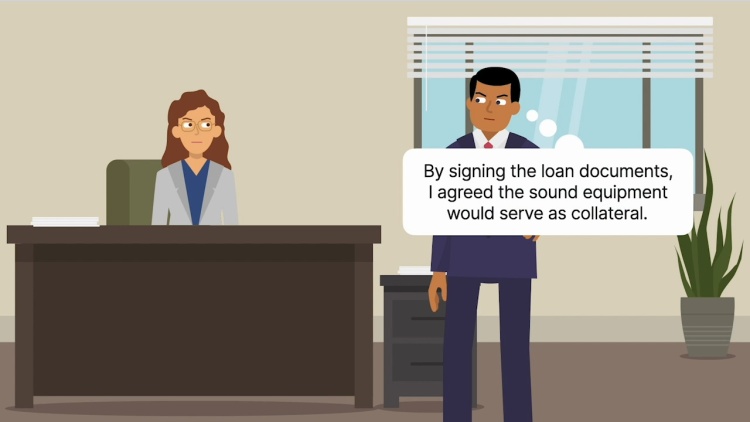In re Sabol
United States Bankruptcy Court for the Central District of Illinois
337 B.R. 195 (2006)
- Written by Noah Lewis, JD
Facts
Michael Sabol, d/b/a Sound Farm Productions, (debtor) completed an application for a Small Business Administration (SBA) guaranteed loan from Morton Community Bank (creditor). The bank’s application for the SBA guarantee contained a separate page signed by its loan officers, but not Sabol. The page listed assets Sabol owned, plus two pieces of sound equipment Sabol intended to purchase with the loan money. Sabol executed a $58,000 promissory note and a letter authorizing the bank to file Uniform Commercial Code (UCC) Article 9 financing statements. The bank filed a UCC financing statement—not signed by Sabol—covering inventory, accounts receivable, and equipment. Sabol signed no security agreement, and no security agreement was discussed with him. Sabol understood that signing the loan documents meant the equipment would be collateral. Sabol used the loan money to purchase less than $20,000 of sound equipment. Sabol and his wife, Rhonda Sabol, subsequently filed for Chapter 7 bankruptcy, listing the bank as a secured creditor with a security interest in tools valued at $12,410, with a total claim of $35,792.91. Following a trial, Charles Covey, the Chapter 7 estate trustee, contended that the bank did not have a valid security interest because there was no security agreement. The bank sought to apply the composite-document rule, arguing that, taken together, the loan application, the promissory note, the authorization, and the financing statement established an agreement to create a security agreement.
Rule of Law
Issue
Holding and Reasoning (Perkins, C.J.)
What to do next…
Here's why 907,000 law students have relied on our case briefs:
- Written by law professors and practitioners, not other law students. 47,100 briefs, keyed to 996 casebooks. Top-notch customer support.
- The right amount of information, includes the facts, issues, rule of law, holding and reasoning, and any concurrences and dissents.
- Access in your classes, works on your mobile and tablet. Massive library of related video lessons and high quality multiple-choice questions.
- Easy to use, uniform format for every case brief. Written in plain English, not in legalese. Our briefs summarize and simplify; they don’t just repeat the court’s language.





